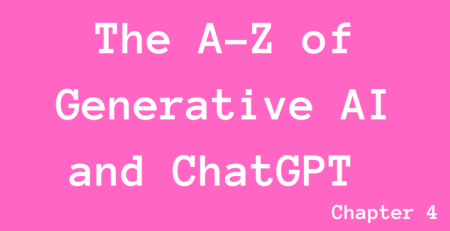Elevate Your AI Game: The Critical Role of Prompt Engineering
Imagine a scientist using a powerful AI tool to design a new material with previously unseen properties. Or a writer crafting a captivating story in the style of their favourite author, all within minutes. These are just a few possibilities unlocked by the magic of large language models (LLMs). However, unleashing their full potential requires a key skill: Prompt Engineering.
What is Prompt Engineering?
LLMs are revolutionising industries, but their vast capabilities can be overwhelming. Think them as remarkably knowledgeable chefs armed with an extensive library of ingredients (data) and recipes (algorithms). However, to craft the perfect dish (output), these skilled culinary LLM artists require precise instructions in the form of prompts. To harness the full potential of LLMs, provide them with clear and effective prompts, allowing these language models to deliver tailored and exceptional results.
Prompt engineering is the art of crafting instructions that guide LLMs such as OpenAI towards specific outputs through written, verbal, or visual instruction (i.e., multimodal inputs) in much the same way one individual communicates with another. Just as a detailed recipe ensures a delicious meal, well-designed prompts lead to accurate, creative, and stylistically specific AI outputs.
Here’s why it matters:
- Enhanced Creativity and Innovation: Good prompts can unlock AIs creative potential, helping generate unique ideas, suggestions, and solutions that might not be immediately obvious. This can be particularly valuable in marketing, content creation, and product development.
- Increased Control: Prompt engineering allows you to obtain and fine-tune the results you get from LLMs such as OpenAI or Anthropic. This enables you to adjust aspects such as the reading age, creativity levels, and the writing style of the text produced.
The Power of Fine-Tuning In Generative AI (forbes.com)
- Precision in Results: With skilled prompt engineering, you can precisely guide the model to produce outputs that align closely with your needs. This includes tailoring the content’s tone, complexity, and focus, ensuring the output is relevant and to the point. In addition, well-crafted prompts help minimize misunderstandings by the AI, leading to more accurate outputs. This is crucial for applications where precision is essential, such as legal documentation or technical manuals.
- Improved Productivity and Efficiency: Designing the right prompt can drastically lessen the time and effort needed for various tasks. For example, you could generate several versions of marketing copy or summarize complex research papers using just a handful of well-crafted prompts.
Optimizing Large Language Models to Maximize Performance (promptengineering.org)
- Technology Accessibility for Non-Experts: Great prompt engineering makes powerful technology accessible to users without extensive technical backgrounds. By simplifying the interaction with LLMs through effective prompts, more people can leverage AI tools for a huge variety of applications, e.g., grammar check a document, complete segmentation or statistical analysis, clone a voice, or create an entire marketing campaign for a small business.
- Reduced Reliance on Coding Experts: While some advanced applications might require coding skills, prompt engineering can make powerful AI tools accessible to users without deep programming knowledge. The democratisation of code
Prompt Engineering in Large Language Models | SpringerLink
- Cost-Effectiveness: Efficient and precise prompt engineering can reduce the reliance on human labour for generating content, analyzing data, or conducting research, leading to significant cost savings for businesses and organizations. This is especially valuable for repetitive tasks or requiring quick turnaround times. For example, good prompts can guide AI to produce outputs in multiple languages, thereby expanding access and usability for non-English speakers and increasing the global reach of business services without the cost or need of a human translator.
Why Should Everyone Learn Prompt Engineering?
The answer is simple: AI is rapidly infiltrating every aspect of our lives. By one estimate, close to 80% of the jobs in the U.S. economy could see at least 10% of their tasks done twice as quickly (with no loss in quality) via the use of generative AI[1]. LLMs are poised to become ubiquitous tools in healthcare, finance, marketing, and education. Learning prompt engineering equips you to leverage this technology, regardless of your field.
Consider it a form of AI literacy, empowering you to:
- Democratise AI Tools: Prompt engineering allows individuals, not just tech specialists, to harness the power of AI for tasks like content creation, data analysis, and scientific research.
- Future-Proof Your Skills: As AI continues to evolve, the ability to interact effectively with LLMs will be a valuable asset, regardless of your current profession. Imagine doctors using prompts to personalize patient care or lawyers crafting legal documents with the help of AI.
Prompt Engineering: The Next Wave Of Skillsets (forbes.com)
Developing Your Prompting Skills
Becoming a prompt engineer doesn’t require a Ph.D. Here’s how to get started:
- Start Simple: Begin with basic prompts and gradually increase complexity as you gain experience.
- Clarity and Specificity are Key: The more precise your instructions, the better the LLM will understand your intent. Avoid vague terms, use clear and concise language. Here’s an example:
- Bad Prompt: “Write a blog post about AI.”
- Good Prompt: “Write a 1000-word blog post explaining the benefits of AI for small marketing businesses in an engaging and informative tone aimed at a non-technical affluent audience living in London aged between 35-45.”
- Learn from the Experts: Many organisations recognise the importance of prompt engineering and have appointed “Chief Prompt Engineers.” These individuals can:
- Train employees on best practices for crafting effective prompts.
- Curate libraries of successful prompts for various tasks.
- Warn individals of the risk of generative AI.
- Stay updated on the latest advancements in the field.
What You Need To Know About Prompt Engineers—And Why You Might Want One (forbes.com)
Beyond the Basics: Security, Privacy, and Ethics
As with any powerful tool, prompt engineering comes with considerations:
- Security Concerns: Malicious actors could craft prompts to generate harmful content such as deepfakes, rogue code, bias or misinformation. It’s crucial to be aware of these risks and use prompts responsibly.
- Privacy Matters: When using prompts with LLMs, ensure responsible data handling. Understand how your data is used and avoid prompts that might inadvertently reveal sensitive information.
- Ethical Considerations: The increasing automation through AI raises ethical questions. It’s important to discuss potential job displacement openly and ensure AI is used for good.
How to Train Generative AI Using Your Company’s Data (hbr.org)
The Future of Prompt Engineering
The field of prompt engineering is constantly evolving. Recent critiques, such as the one in the Harvard Business Review questioning its future, raise valid points. Prompt engineering is likely to remain a crucial aspect of AI interaction. Here’s what we can expect:
- Emerging trends: Expect advancements in areas like few-shot learning, where minimal prompts can guide LLMs towards complex tasks.
- Shaping AI communication: Prompt engineering will play a key role in how we interact with and receive information from AI systems in the future.
Using Prompt Engineering to Better Communicate with People (hbr.org)
- Driving innovation: Across sectors effective prompt engineering has the potential to unlock groundbreaking discoveries and transform industries.
Conclusion
The rapid changes brought by the spread of generative AI will require prompt and effective reskilling efforts[2]. Industry experts anticipate that generative AI will speed up scientific discovery, help innovators and engineers build better, and give creative people new ways to express themselves and move their audiences[3]. With that in mind, learning prompt engineering become a key skill that equips you to actively participate in the AI revolution, not as a passive observer. It empowers you to leverage the power of LLMs for increased creativity, productivity, and even personal exploration. Embrace this valuable skill, explore resources to develop your prompting abilities, and join the conversation about shaping the future of AI. After all, the future of AI might just be written by you—with the right prompt!
Ready to get started? If you are, feel free to reach out. I’m here to help individuals and organisations navigate this exciting new frontier.
Check out my previous blog at – London Black Taxi Driver lost ‘The Knowledge’ – AI is attacking your job too! – Kieran Gilmurray










Leave a Reply